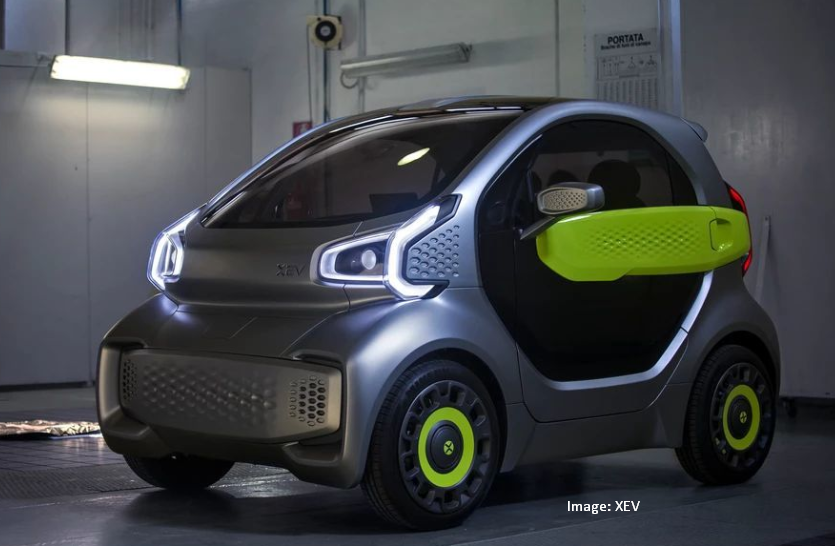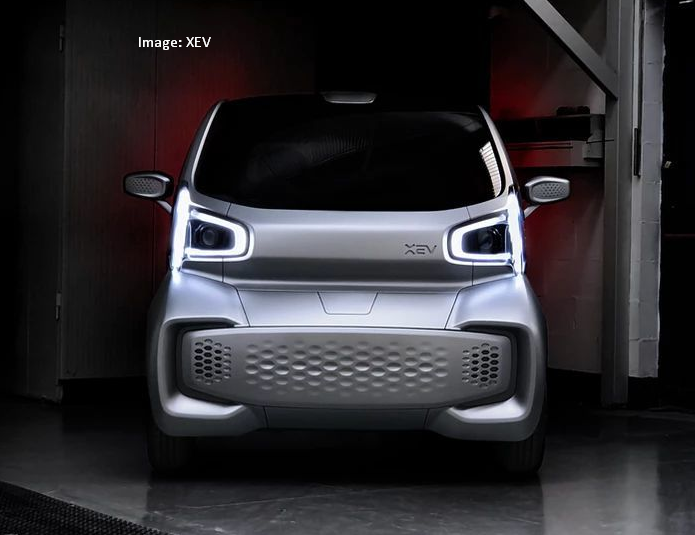
3D Printing has come a long way in the last few years and the latest development involves mass-producible electric cars. In 2018, Italy’s XEV announced they were partnering with Chinese 3D printing firm, Polymaker, to build a small, inexpensive electric city car called the LSEV.
The car is now much closer to production, with the launch of a Kickstarter campaign, and they’ve changed the name to the YoYo. The YoYo electric car was designed to lower the cost of all-electric driving considerably while including many possibilities for vehicle personalisation.
This is made possible thanks to 3D printing of components which essentially means the company can offer a library of new part styles. They will be able to retro-fit the custom 3D printed parts to alter the car’s appearance or to repair damaged components.
Benefits Of 3D Printing
While at least one other company is producing 3D printed cars, the numbers are relatively small. In comparison, the YoYo is regarded as being “the first mass-producible 3D-printed electric car in the world.”
According to Polymaker, all the visible parts on the car except the chassis, seats and glass are 3D-printed. This has resulted in reducing the number of manufactured parts from 2,000 to just 57 if it doesn’t include the drivetrain, for example. Thanks to additive manufacturing, the combined total vehicle weight is only 450 kg (992 lb).
XEV can significantly reduce the manufacturing cost and make it possible to guarantee countless vehicle customisation options. Another big advantage of 3D printing a vehicle is that it accelerates the research and development process. This means that XEV can complete a new vehicle design in 3 – 12 months compared to the typical three to five years of conventional cars.
3D Printing The Compact, Practical Electric Vehicle
The compact electric city car is being built to meet the stringent European safety standards. As such, all components are secured to a steel frame with front impact beams, side-impact beams in the doors and a roll cage of sorts. Additional safety features will include ABS, front and rear disc brakes and a driver’s side airbag.
Like the Renault Twizy, the YoYo 3D printed car will fall in the L7 vehicle category, considering it’s a quadricycle rather than a car. In terms of dimensions, it sure is compact measuring 2.5 x 1.5 m (8.2 x 4.9 ft) offering exceptional manoeuvrability and parking. The turning circle is less than 8 m (26 ft) and despite the size, XEV stated that the ride will be comfortable for “everyone from the daintiest ballerina to the burliest rugby player.”
Specifications And Technology
The YoYo will have a 7.5 kW (22 kW peak) motor with an electronically-limited top speed of 70 km/h (43.5 mph). This means it is not suitable for highway driving but absolutely perfect for urban or city streets. The range on a single charge is approximately 150 km (93 miles) and also has technology that monitors the health of the LiFePO4 cells.
This monitoring technology enables the company technicians to replace a poor performing battery pack with a fresh one. Not only is this hugely convenient for YoYo owners but they will also benefit from battery technology improvements in the future.
Recommended: ‘Using Composite Materials To Build Safer And Lighter Vehicles’
Features And Pricing
The compact YoYo electric vehicle has a large touchscreen infotainment system, panoramic roof, keyless entry, electric mirrors and 180 litres of boot space. It has energy-efficient LED lights at the front and rear with the addition of daytime running lights.
According to XEV, “Keyless entry, electric mirrors and a large touchscreen for the infotainment and vehicle information are standard’. As for everything else, it can be switched up according to the owner’s preferences.
XEV is crowdfunding the YoYo on Kickstarter with an aim to raise $554,486 (£423,000). Kickstarter pledges start at £5,125 (US$6,720) although the YoYo is not made available in the US. If all goes according to plan, the company could start shipping in December 2020. The video below has more.

What’s The Verdict?
The YoYo seems like the type of car that will grow with the owner in more ways than one. According to XEV, they will make upgrades to the vehicle based on customer feedback and plans to retrofit those parts onto the base model.
XEV believes that such a small car could be the answer to problems drivers face in traffic today. The use of advanced 3D printing technology and exceptional design will help make the YoYo a respected competitor in the EV segment. Of course, it all depends on whether they can secure the necessary funding.
If you liked reading this article and have something valuable or interesting to share, please comment in the section below. You can also join the conversation on social media using the hashtag, #PRVtech. To stay up to date with all the latest in engineering, fabrication and technology, please follow our weekly blog.
This site uses Akismet to reduce spam. Learn how your comment data is processed.


 Mail:
Mail: 




Leave a Comments